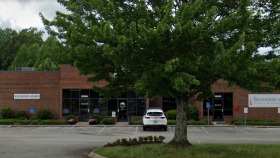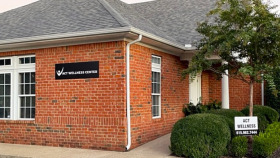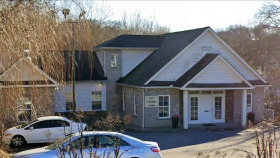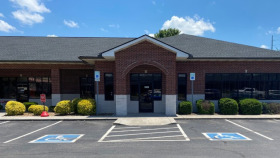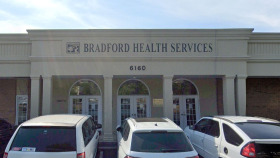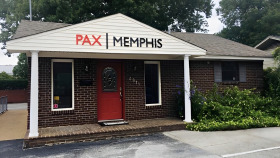Expert Insights
The number of drug overdose deaths in Tennessee rose by 51% between 2019 and 2021, many of which have been attributed to opioids. The dangers associated with illegal drug use are evolving and related to the drugs abused.
Illicit opioid use, including medications purchased online or through unauthorized dealers, carries significant risks. Illegally-obtained opioids are frequently adulterated with contaminants or other substances, including fentanyl. This increases the likelihood of fatal overdoses related to multi-drug toxicity or fentanyl exposure.
Mental health professionals, law enforcement, and policymakers must be vigilant in fighting drug abuse. The dangers don’t only threaten those who use drugs. These substances put everyone at risk, including first responders and the general public unintentionally exposed to lethal amounts of fentanyl in the illicit opioid drugs that circulate throughout their community, neighborhood, and other public spaces.
~ Gayle Morris, BSN, MSN
How Much Does Drug Rehab Cost in Tennessee?
Tennessee is ranked 16th nationwide in terms of addiction treatment affordability, with an average cost of drug and alcohol rehab of $56,600 (without insurance).
- Medical detox is the most expensive, with an average cost of $139,540
- Long-term inpatient drug rehab in Tennessee costs an average of $49,946
- Outpatient addiction treatment in Tennessee costs an average of $8,299
- Outpatient methadone treatment is the most affordable, with an average cost of $7,374
Costs for Tennessee treatment vary depending on multiple factors. Consider the following when putting together a budget for a potential treatment center in Tennessee:
Treatment Type: Do you need a long-term residential (inpatient) program or an outpatient program?
Program Duration: How long will you be in rehab? Treatment programs typically range from 30 to 90 days, but can last longer if needed.
Amenities: What amenities do you want or need? Standard rehabs offer evidence-based treatment, but luxury programs tend to have on-site pools, gyms, spas, and more.
Location: Which part of Tennessee do you want to attend? Costs vary significantly from metropolitan areas to more rural areas.
Private Health Insurance Coverage: Do you have health insurance? Providers cover some, if not all, costs associated with substance use treatment.
Funding: Are you eligible for state-funded programs, scholarships, or financing plans?
How to Pay For Addiction Treatment in Tennessee
According to a 2020 profile compiled by the National Survey of Substance Abuse Treatment Services (N-SSATS), Tennessee rehab centers accept the following payment methods:7
Even if you lack insurance or the financial means to cover out-of-pocket costs, you still have options to access quality treatment. Free and low-cost rehab is available, if you qualify.
Major Private Insurance Carriers in Tennessee
- Aetna
- Allstate Health Solutions
- Ambetter of Tennessee
- Blue Cross /Blue Shield of Tennessee
- Bright Healthcare
- Carelon Healthcare Services
- Cigna Healthcare of Tennessee
- Farm Bureau Health Plan
- Humana Health Plan of Tennessee
- Oscar Insurance
- UnitedHealthcare
- US Health Group
- ValuePenguin
Medicaid
Medicaid insurance in Tennessee is called TennCare. It works through a waiver from the Centers for Medicaid and Medicare Services and the U.S. Department of Health and Human Services. Under the waiver, Tennessee’s Medicaid insurance uses a managed care, “at risk” process. This means that CMS pays the managed care companies that supply the healthcare policies a fixed fee for plan services.
If the plan spends more money than the fixed rate, the overage is not covered by CMS. If they spend less, they keep the extra amount.
Substance abuse treatment provided through TennCare Medicaid managed care programs can include services like crisis care, detox and medication-assisted treatment, inpatient/residential addiction treatment, outpatient treatment (partial hospitalization, intensive outpatient, or regular outpatient), 12-step and faith-based programs and LGBTQ+ programs–the same types of services that are typical in traditional CMS Medicaid coverage.
But not all services will be available at every facility.You should always check with your insurance provider to find out which facilities and programs are available to you through your Medicaid insurance plan.
Medicare and Medicare Advantage
Medicare and Medicare Advantage insurance plans in Tennessee cover mental health, as well as substance abuse treatment for those who are diagnosed with a substance abuse disorder (SUD).
The substance abuse services available will vary by plan, but they often include detox, with medication-assisted treatment if needed, inpatient or residential care, outpatient treatment (partial hospitalization programs and intensive outpatient programs) and regular outpatient treatment.
Individual, group, and family counseling are also covered. Medication management, and diagnostic psychiatric evaluations or psychological assessments may also be included.3 But you should always check with your own insurance provider and ask about the details of your plan’s substance abuse coverage. Many policies place limits on the number of inpatient days they cover. Other fees may also apply, including deductibles and copays.
Military Insurance
Insurances typically available to active military personnel and military veterans include TriCare insurance and the insurance benefits that are provided through the Department of Veterans Affairs. TriCare insurance covers substance abuse treatment for individuals who are diagnosed with substance use disorder.
Covered services may include inpatient or residential care, opioid addiction treatment (including detox and medication-assisted treatment), outpatient treatment options (including intensive outpatient and partial hospitalization programs) and regular outpatient treatment.
Services vary according to the policy purchased, so the types of treatment services available will differ as well. Some services will not be available at every facility. And sometimes insurance policies place limitations on specific services, such as the number of inpatient treatment days they cover.4
The VA’s addiction and substance abuse treatment benefits for Tennessee military veterans are offered through the federal VA Substance Use Disorder program. This program provides inpatient treatment and outpatient treatment, as well as opioid treatment. But the services available vary according to the individual VA SUD facility locations.5 You can find a list of Tennessee VA clinics that have SUD programs at this website.
Tribal and Indigenous Peoples’ Programs
There are no federally recognized American Indian reservations in the state of Tennessee, even though there are still some members and descendants from major tribes (Cherokee, Chickasaw, Shawnee, and others) still living in the state.
Because Tennessee has no officially recognized tribes or reservations, the Indian Health Service does not maintain clinic facilities in this state that would provide substance abuse treatment for Native American Indians. However, the Native American Indian Association of Tennessee, a nonprofit organization, does seek to fill some of the gap. They promote Native American culture and they also provide for some of the needs of Native Americans in Tennessee, no matter which tribe the individuals identify with.
NAIA provides employment assistance, education, and supportive social services, including assistance in finding and accessing healthcare resources to the American Indian populations in Tennessee.6 So, assistance in finding substance abuse treatment might be available by contacting this organization, which has headquarters in Nashville. You can reach them by calling 615-232-9179 or emailing NAIA@NAIATN.org.
Additional resources for finding mental health and substance abuse counseling for Tennessee Native Americans are the community mental health centers listed on the U.S. Department of Human Services Federally Qualified Health Center website.
FQHCs are mental health clinics specializing in providing services to underserved communities throughout the country, such as American Indian communities that do not have Indian Health Service facilities available to them. FQHCs accept Medicaid as insurance. 7 You’ll find a list of Tennessee FQHCs on their website. Use the search box to type in the name of the state (Tennessee).
Other Low-Cost Options
Financial Assistance
One way to help finance your substance abuse rehab treatment is to take out a loan from a bank, family member or friend. You might also consider soliciting funds through a social media platform like GoFundMe, an online platform that helps people raise money for a project, or for personal needs.
Or if you identify with a community that often faces discrimination (ex: a racial minority group; the LGBTQ+ community), you can possibly find support from an organization that serves these communities. Such advocacy organizations sometimes offer scholarships that can help pay for addiction treatment for individuals associated with their communities.
Sliding Scale Payments
Many rehab facilities will offer reduced fee payment options to make treatment affordable for potential clients who, without it, wouldn’t be candidates for treatment at that facility. If your income falls below the federal poverty level, you could receive the maximum fee reduction that is offered at a facility.
But because addiction rehab costs vary greatly (luxury rehabs are much costlier than state-funded facilities), even if you receive a discounted fee, it still wouldn’t guarantee that a particular rehab would be affordable for you.
Family Medical Leave Act (FMLA)
The Family Medical Leave Act, initiated in 1993, guarantees job security to employees when they take leave from work for mental health reasons, such as accessing treatment for addiction. Using FMLA, you can take an unpaid leave for up to 12 weeks within any 12-month period, and you won’t lose your job. While you are on leave, your employer must continue to maintain your health insurance benefits.
Substance Abuse and Mental Health Services Administration Block Grants
SAMHSA, the Substance Abuse and Mental Health Services Administration, issues block grants to every state. These grants are available for use by local government and non-governmental organizations to help them provide services such as mental health crisis services, residential or inpatient care, or outpatient addiction treatment.
In Tennessee, the Department of Mental Health and Substance Abuse Services uses SAMHSA block grants to help fund substance abuse prevention services, substance abuse treatment, and addiction recovery support. Ask the rehabs that you are considering whether they have SAMHSA grants available to help pay for your treatment.
Free Addiction Treatment in Tennessee
When investigating low-cost or free addiction rehabs in Tennessee, you’ll find many options available. There is funding assistance available for addiction treatment for people who have Medicaid insurance, and there are state grants and federal block grants available as well. You can also find facilities that offer sliding scale, reduced fee payment structures.
Additional funding opportunities come from nonprofit organizations, including faith-based groups, groups that serve underserved populations, like LGBTQ+ groups, and indigenous /tribal populations. Military veterans’ groups can be another funding source for substance abuse treatment. You’ll find suggestions for these funding options as well as other opportunities in the sections below.
When you are reviewing free or low-cost substance abuse treatment options, make sure to look for facilities that offer evidence-based treatments in addition to affordability.
Tennessee Crisis Hotlines
Tennessee 211
Funded by United Way, this Tennessee statewide hotline provides crisis resources, including addiction treatment referrals, housing referrals, senior care or childcare resources, employment assistance, and other forms of crisis support to callers. To reach the hotline, dial 211 on your phone.
Tennessee Addiction Hotline
Affiliated with the National Rehab Hotline organization, the Tennessee Addiction Hotline is a free crisis hotline that is available 24/7. To anonymously receive help with substance use issues or addiction, call 866-210-1303. This will connect you to an addiction specialist who can help you by providing resources and support.
National Alliance on Mental Illness (NAMI) Tennessee
NAMI Tennessee is a state nonprofit organization that is affiliated with the national NAMI organization. NAMI provides assistance to families, caregivers, and others who are affected by mental illness. The mental illness may be their own, or it may be that of another person.
NAMI Tennessee offers education, support, and community outreach focused on mental health issues. They also help mentally ill people manage their symptoms and navigate the mental health system.
Volunteer Behavioral Health Care System (VBHCS)
This non-profit 501-c3 organization receives funds from the Tennessee Department of Mental Health and Substance Abuse Services. They provide support to people in drug treatment and addiction recovery in Tennessee. Services include peer support centers that are located throughout the state, housing programs, and diversion programs for justice-involved individuals.
Tennessee Department of Mental Health & Substance Abuse Services Juvenile Justice Diversion Programs
This statewide organization provides community-based substance abuse treatment services for at-risk juveniles who are involved with the Tennessee juvenile court system, and who are at risk of being placed in Department of Children’s Services custody. Funding is also provided by Tennessee DCS and the Tennessee Commission on Children and Youth. Treatment programs are offered in lieu of commitment to state custody or jail.
Johnson City Recovery Center
The Johnson City Recovery Center supports individuals in drug recovery, providing coaching, wellness education, and recovery support groups. They also offer free naloxone (Narcan), and fentanyl test strips. In addition, their peer recovery specialists can link individuals with other community resources, including housing, food, and employment assistance.
Tennessee Regional Overdose Prevention Specialists
The Tennessee Department of Mental Health & Substance Abuse Services manages Regional Overdose Prevention Specialists, who are located throughout the state, in their role of distributing free naloxone (Narcan) kits and providing overdose prevention training at ROPS facility locations.
Tennessee Syringe Services Program
The Tennessee Department of Mental Health and Substance Abuse Services’ Syringe Service Programssupport harm reduction by providing free syringes, sterile needles and safe disposal containers, as well as overdose prevention education. They also offer HIV and hepatitis testing and provide linkages to treatment, medical professionals, and social services.
Tennessee Drug Use Statistics
According to the Tennessee Bureau of Investigation (TBI), Tennessee ranks incredibly high for substance use among other states. For one, roughly 70,000 Tennesseans have an opioid use disorder (OUD).8 Among states reporting prescription drug abuse, Tennessee ranks third in the United States.8 It is estimated that at least 80% of all crime in the state is related to illicit substance use and trafficking.1
Some of the most current statistics regarding substance use in Tennessee include:1, 8, 9, 11

By current estimates, there are more than 800 methamphetamine labs operating throughout the state of Tennessee.
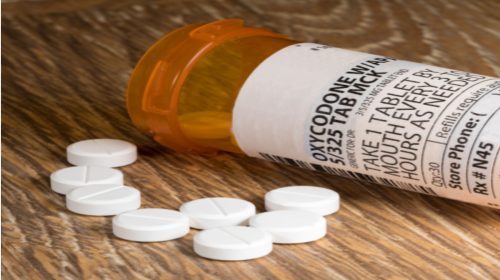
By the mid-2000s, residents of Tennessee illegally abused prescription opioids at higher rates than residents of any other state.

Since 2012, the total number of prescription opioids written in Tennessee (other than buprenorphine / Suboxone) has decreased significantly.
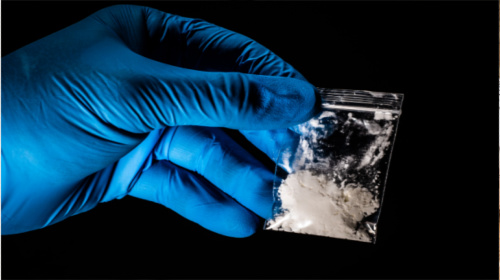
While reports of hydrocodone and oxycodone abuse in TN have decreased year over year, abuse of heroin, fentanyl, and fentanyl-like substances have spiked.
In 2020, a total of 3,032 opioid-related overdose deaths were reported in Tennessee. Around 75% of those deaths involved fentanyl.
Every day, at least three people die from an opioid-related overdose in TN – that’s more than the state’s number of daily traffic fatalities.13
During the mid-2000s, TBI crime labs documented the first cases of counterfeit opioid painkillers. The pills were disguised as oxycodone, but in reality, they were fentanyl.1 Heroin has become an increasing concern for TN, as there haves been a notable influx of the substance often mixed with fentanyl.1 Moreover, in the Nashville-Davidson-Murfreesboro-Franklin MS areas, the yearly average of individuals using illicit substances starting at age 12 is 218,000—representing 14.7% of the national average.2
Drug Laws in Tennessee
Tennessee Good Samaritan Law
The Tennessee Good Samaritan law protects people who assist in an overdose emergency. It prevents them from being arrested for their actions (ex: administering Narcan), if the care is offered “in good faith,” in an attempt to save a life, and without recklessness. The law does not protect any participants from possible arrest for seizure or evidence of contraband found at the scene.
Tennessee Cannabis (Marijuana) Law: Possession
A first-time conviction of possession of marijuana in Tennessee is a class A misdemeanor, punishable by a maximum of one year in jail and up to $2,500 in fines. A second marijuana possession conviction is a Class E felony and is punishable by imprisonment of one to six years and a fine up to $3,000.
Tennessee Cannabis (Marijuana) Law: Possession with Intent to Distribute
Possession of marijuana with an intent to sell (distribute) is a felony in Tennessee. Possession of items related to distribution, such as weight scales, bags or other containers typically used to package and resell drugs, and large amounts of unclaimed cash, all help determine whether a possession charge is elevated to a charge of intent to distribute.
Intent to distribute between 0.5 ounces and 10 pounds of marijuana is a Class E felony. It is punishable by one to six years of incarceration plus a fine up to $5,000.
DUI Laws in Tennessee: First and Second Offense
For a first DUI in Tennessee, with a blood alcohol level up to .08, the punishment is 48 hours to 11 months, 29 days in jail, a fine of $350-$1,500, and possible participation in a DUI program (ordered at a judge’s discretion). Your driving privileges may also be restricted for one year. A second offense can result in 45 days to 11 months, 29 days in jail, a fine of $600-$3,500 and revocation of your driver’s license for two years. An interlock device on your car may be ordered.
DUI Laws in Tennessee: Third and Subsequent Offenses
In Tennessee, a third DUI offense results in 120 days to 11 months, 29 days in jail, a fine of $1,100 to $10,000, suspension of driving privileges for 6 years, and a mandatory alcohol and drug treatment program. An interlock ignition device must also be installed in your car.
A fourth or subsequent DUI offense is a class E felony, punishable by one year in jail, $3,000- $15,500 in fines, license revocation for eight years, a mandatory alcohol/drug program at your expense, and an interlock ignition device installed on your car. Seizure and forfeiture of your car are possible as well and may be ordered at the court’s discretion.
Resources
- Tennessee Bureau of Investigation (n.d.). Current Drug Trends.
- Substance Abuse and Mental Health Services Administration. (n.d.). Review of Substance Use and Mental Disorders in the Nashville-Davidson-Murfreesboro-Franklin MSA.
- U. S. Department of Health and Human Services. (2021). Mental Health and Substance Use Insurance Help.
- Substance Abuse and Mental Health Services Administration. (2021). Grants.
- Shah, M., & Huecker, M. R. (2022). Opioid Withdrawal. In: StatPearls [Internet]. Treasure Island (FL): StatPearls Publishing.
- Office of Informatics and Analytics. (2022). Tennessee Drug Overdose Data Dashboard. Tennessee Department of Health.
- Adolescent Substance Use Disorders Services Program (ASUDSP). (2020). Provider Listing.








